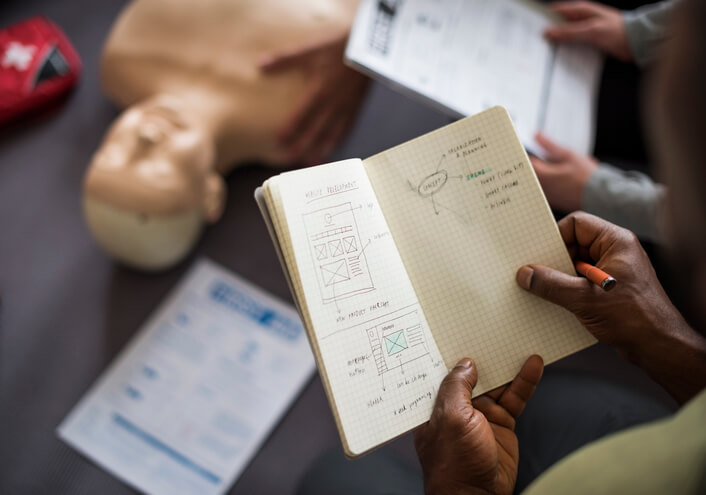
Emergency preparedness is a critical aspect of the job for every medical professional, especially first responders. You’ll be working with people at some of the most difficult times of their lives, often in the wake of immense tragedy or a sudden disaster. Emergency preparedness should guide your work.
Making sure you are prepared for emergencies is not something you do once – it’s an ongoing undertaking that you must continually revisit in training, in your work with other agencies, and on your own.
Preparedness saves lives.
Preventing Casualties
The right emergency response strategy can prevent or mitigate casualties. For example, educating your community about the importance of emergency preparedness can encourage people to stock additional medication to ensure they have what they need should disaster strike. Some other ways that emergency preparedness reduces casualties include:
- Ensuring first responders have the right equipment available.
- Preparing first responders to respond to common disaster scenarios appropriately.
- Preventing first responder paralysis and panic in the wake of emergencies.
- Identifying areas for additional training and preparation.
- Ensuring there is a clear plan in place for promptly responding to the most serious emergencies.
Coordinating with Other Agencies
Coordination with other agencies is key to helping people survive serious emergencies. During a mass shooting, for example, you might need police assistance to secure the scene or fire assistance to control fire hazards.
Coordinating this interagency work at the last minute can lead to confusion, slowed responses, and serious injuries. Plan your strategy for coordinating with other agencies well ahead of time, with a plan that includes, at minimum:
- A designated communication point person for each agency.
- A clear understanding of each agency’s roles.
- A communication plan in the event of power loss.
- Strategies for managing staffing shortages.
Know What to Expect
What are the most common injuries in a mass shooting? Which natural disaster is the most dangerous? How can natural disasters affect long-term health? Knowing the answers to these, among other relevant questions, can help you better respond in an emergency.
Emergencies are overwhelming and stressful, even for professionals. Your critical thinking skills may deteriorate, especially if you have yet to undergo training for managing the scenario you face. Emergency preparedness ensures you have the right skills and the right state of mind to manage a disaster.
Keeping First Responders Safe
Thousands of first responders are injured at work each year. Hundreds die. You can’t care for your community if you’re severely injured yourself. Self-protection strategies should form the core of every disaster preparedness plan. Your agency should regularly discuss and offer training on:
- Psychological preparedness for dealing with disasters and trauma
- Mental health aftercare following a mass casualty event
- Physical safety at a crime scene
- Protecting yourself from angry or fearful patients
- Minimizing the risk of common injuries such as heat exhaustion and wounds
- Preventing the spread of infection
- Heading off exhaustion and burnout
The Inevitability of Emergencies
Emergencies are unavoidable. In 2021, natural disasters affected 101.8 million people globally. Preparing for emergencies can save lives – maybe even your own, so don’t neglect this important aspect of your job.
Airway emergencies are common during disasters, especially among people with chronic medical conditions. Unfortunately, power outages are also a common occurrence during natural disasters. The right portable suction machine can save lives by enabling you to tend to patients without moving them and even without electrical power. For help choosing the right machine for your agency, download our free guide, The Ultimate Guide to Purchasing a Portable Emergency Suction.
Editor's note: This blog was originally from September 2021. It has been re-published with additional up to date content.















